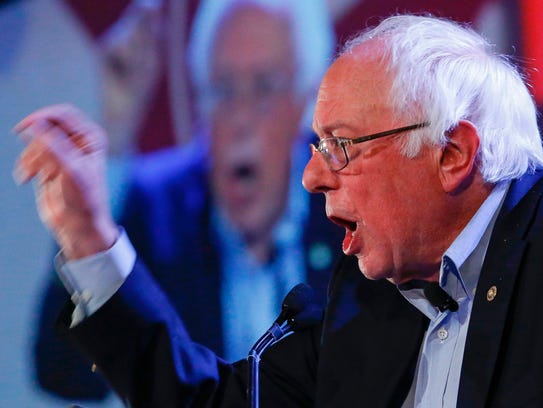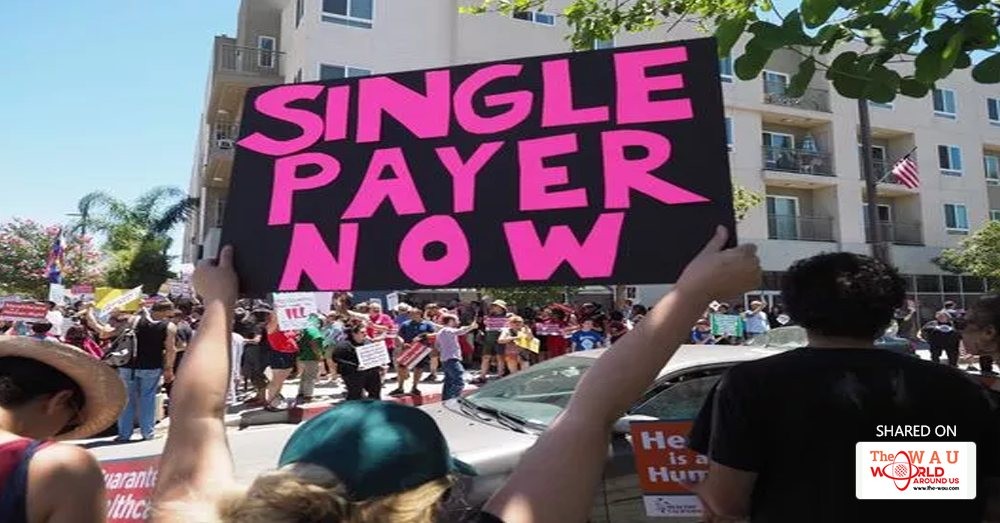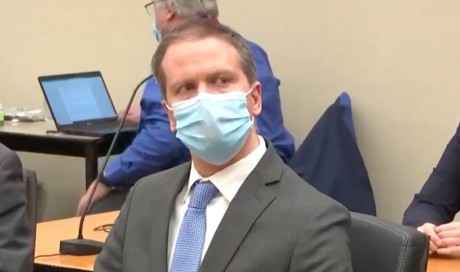It’s not just the GOP that’s divided on health care.
Legislation Sen. Bernie Sanders plans to introduce soon highlights a wedge issue for Democrats and is emerging as the Republican retort to their own problems with repealing and replacing Obamacare.
While defending the Affordable Care Act, the Vermont independent says the way forward in the long term is a “Medicare-for-all” single-payer system, a federally-administered program that would eliminate the role of private insurers in basic health care coverage.
“Medicare-for-all...will be saving middle class families substantial sums of money, and it will be guaranteeing health care to every man, woman, and child in this country,” said Sanders, who is part of the Senate Democratic leadership team, Sunday on CNN’s State of the Union.
Single-payer health coverage is becoming increasingly popular with Democrats. But such proposals go further than the Democratic Party platform’s call for universal health care — which could still include private insurers — and beyond the Obamacare fixes most other Democratic Party leaders are discussing as they focus on fighting the deeply unpopular GOP plans, which the nonpartisan Congressional Budget Office estimates will increase the number of uninsured Americans by more than 20 million people.
Despite her prior support for single-payer plans, House Democratic Leader Nancy Pelosi of California said at a June 25 forum that “right now we have to support the Affordable Care Act and defeat what the Republicans are doing,” which she called “grotesque.”
But Republicans are pointing to the Sanders plan as Democrats’ only alternative to Obamacare, raising the specter of a “government takeover” of insurance that will cost trillions and be financed on the backs of taxpayers. An Urban Institute study of Sanders’ proposal during his presidential campaign said it would increase federal expenditures by $32 trillion over 10 years, though a Sanders aide says the forthcoming bill will cost less than the campaign plan.
“The president believes that it’s completely unaffordable and creates a one-size-fits-all government approach to health care,” said White House principal deputy press secretary Sarah Huckabee Sanders.

Support for single-payer health coverage is growing, with 33% of the public favoring this approach to health insurance compared to 21% in 2014, a Pew Research Center poll found in June. The share of Democrats (52%) supporting a single national program to provide health insurance is up 19 points since 2014. But nearly two-thirds of liberal Democrats (64%) support single-payer health insurance while only 42% of conservative and moderate Democrats favor that approach.
In the House, a record 113 lawmakers – all Democrats, including about half of the leadership team – have signed onto Rep. John Conyers’ single payer bill.The Michigan Democrat attributes the support to the success of Sanders’ presidential campaign message and Republican overreach with a “truly sadistic bill.”
“By proposing to slash Medicaid and put poor people's lives in jeopardy to finance a tax cut for millionaires, they've defined the terms of the debate, frankly, better that we've ever been able to,” said Conyers in a statement. “Americans now understand they've got a stark choice between a Republican vision where healthcare is a privilege available only for those who can afford it, and a Democratic vision where healthcare is a right of all people that we collectively guarantee.”
But the centrist think tank Third Way sees talk of a single-payer plan as an effective strawman argument for Republicans and an obstacle to preserving Obamacare. Americans don’t want to start from scratch and a “massive expansion of government” won’t help Democrats connect with voters who just elected President Trump, said Matt Bennett, Third Way co-founder.
“Discussion of single payer right now is irrelevant at best and at worst a serious distraction from the fight to save Obamacare,” he said. “All Democratic energy has to be directed at saving Obamacare. We do not understand why anyone would take their eye off the ball at this moment.”
Sen. Tom Carper, D-Del., a Third Way co-chair, says it’s fine if states want to experiment with single-payer plans. But it’s premature to “just drop everything” at the federal level when there are fixes to save Obamacare. For instance, guaranteeing federal subsidies to insurers who offer reduced rates to working families would help stabilize the federal insurance marketplaces and drive down costs, he said.
“We’ve just gotten to the point where we know how to make this work,” he said of Obamacare.
Some states have tried to implement single-payer plans, but none has succeeded yet. Vermont jettisoned its plans for a publicly financed health care system in 2014 after then-Gov. Peter Shumlin announced it was unaffordable, and the state is now in the process of implementing a different plan that pays medical organizations based on health outcomes. Meanwhile, single-payer health care legislation stalled in California after the assembly speaker blocked its passage last month.
Sanders supporter RoseAnn DeMoro, executive director of National Nurses United, blames private insurers for the exorbitant cost of health care. A litmus test for the progressive community will be whether politicians can support eliminating private insurers’ role in the health care system.
“People are really suffering and they can’t afford the insurance industry’s model,” she said. “People want reprieve from this and they want to just be able to have health care without having to worry about being bankrupt. If they can do it in every other country, why can’t they do it here?”
Share This Post















